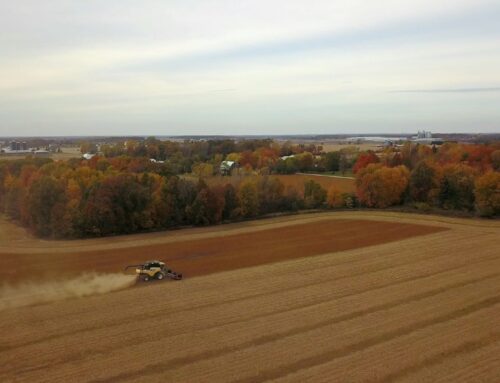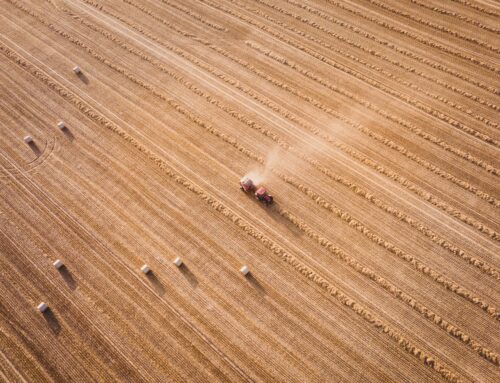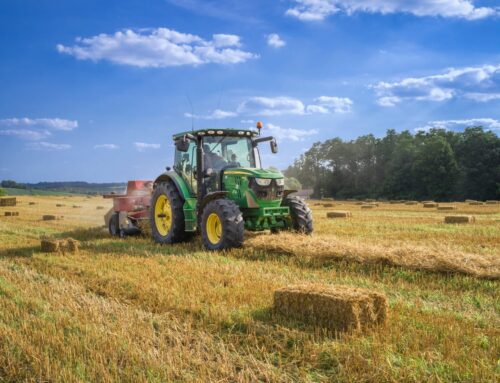Taxpayers can’t afford to save farmers from themselves. The nation can afford a safety net to help agricultural businesses weather risks too complex or too costly to manage on their own. But shouldering the cost for expenses individual businesses can, and often do, shoulder themselves is fiscally irresponsible and economically reckless. Very soon, a new version of the disaster spending bill that recently failed in the Senate will emerge like a spending phoenix from the ashes. Lawmakers must not extend payments to cover the loss of privately owned and stored grain that lacked insurance.
Long before the onslaught of floodwaters inundating much of the Missouri River Valley, farm businesses had the opportunity to purchase insurance on every bushel of corn or soybeans currently in the flood’s path. Like any other farm property – be it machinery, buildings, or inventory such as fertilizer and other inputs – stored grain can be accounted for in an umbrella farm policy. Such policies are widely available from an array of companies including Nationwide, State Farm, Missouri Farm Bureau Insurance, and Farmers Mutual of Nebraska, amongst many.
Lost grain that is not covered by insurance, or that is underinsured, is so because an individual farm business made that choice. There are many possible reasons for this choice. Perhaps belief that this year’s flood risk was low. Maybe in previous floods the business was able to move valuable equipment and inventory out of harm’s way. Or maybe it calculated that some other expense provided a better investment – which ignores the fact that insurance is not an investment; it is a hedge against risk that you would rather not pay out. Regardless, businesses made a choice, and that is their right. Now it’s their responsibility to live with the outcomes, good or bad, of their choice.
Federal disaster policy helps people recover from losses, it does not make people or communities whole. The federally subsidized National Flood Insurance Program compensates homeowners after floods. But not homeowners that chose to forego buying flood insurance, or did not realize their homeowners insurance excluded damage from flooding. This leads to major disparities. In 2016 after heavy rainfall in Baton Rouge, the average homeowner with flood insurance coverage got $86,500 to rebuild, the average person without got only $9,100 in individual disaster assistance. The Small Business Administration also makes low interest loans available for businesses that lost inventory or product due to natural disasters. But these loans must be paid back.
Some in Congress have argued that taxpayers should bail these producers out since federally-subsidized crop insurance doesn’t cover stored grain. This red herring makes no sense. This grain isn’t a “crop.” It’s post-harvest inventory, stored in silos instead of warehouses. You better believe that other businesses purchase insurance to cover stored inventory.
Lawmakers have even gone so far as to propose expanding federal crop insurance to cover stored grain. Expanding the federal government’s role in agriculture to covering losses to stored grain would be fiscally irresponsible and economically reckless. The federal government is already operating at a nearly $900 billion deficit. Replacing a functioning private market with additional federal spending will simply add to that tab at a time when we should be finding more ways for the private sector to shoulder costs. It will also encourage a moral hazard. There is little incentive for a business to invest in an insurance product when they know if calamity strikes the government will simply cut a check. Finally, bailing out producers who chose to not buy insurance, or carried too little insurance, punishes producers who did invest their limited resources in insurance to protect against a possible flood.
There is a limit to what American taxpayers can afford. There are numerous federal programs to assist agriculture in times of need. There are also a myriad of unsubsidized tools businesses can and do employ to manage their risks. Congress must let these programs run their course. Taxpayers and American farmers can’t afford to have Washington wisdom replace individual responsibility and economic liberty.











Get Social